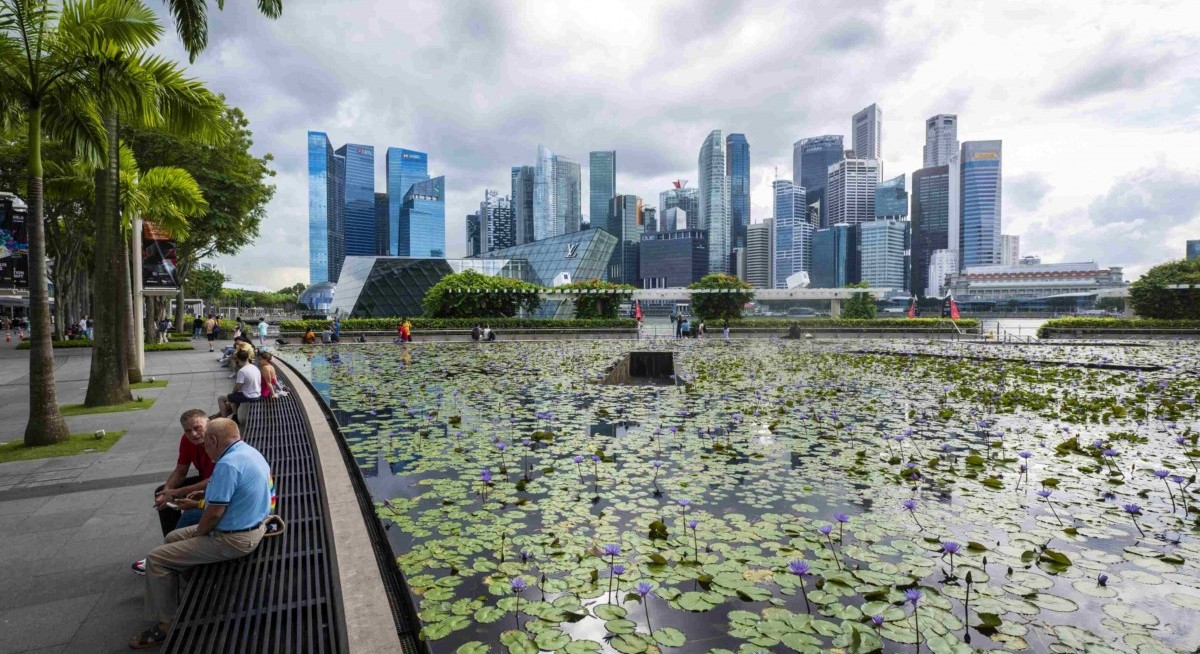Singapore is Asean’s largest market for green, social, sustainability and sustainability-linked (GSSSL) bonds and loans, accounting for more than half of the market, according to the Monetary Authority of Singapore (MAS).
Singapore GSSSL bond issuance volumes rebounded in 2024, in line with “stepped-up” bond issuances globally due to a more benign interest rate environment, according to MAS’s latest sustainability report, released July 9.
Last year, Singapore GSSSL bond issuance volumes bounced back from two consecutive years of declines, surging nearly 80% to $13.3 billion.
This also includes the small but growing category of transition bonds, which are exclusively used to finance or refinance projects that support the issuer’s climate transition strategy.
That said, Singapore GSSSL bond issuance in 2024 was still below 2021’s peak of $14.4 billion, and green bonds increased their dominance over other categories.
See also: Banks backing green steel fund ‘false solutions’ — report
Meanwhile, GSSSL loans originated from Singapore in 2024 hit a yearly high for the seventh consecutive year, with over $48 billion in loans issued. Sustainability-linked loans (SLLs) have been the dominant loan type since 2021.
Since 2022, MAS has been referencing statistics from the Environmental Finance database for the total volume of GSSSL loans in Singapore. MAS supports global and Asian corporates to access sustainable financing for green and transition projects through the Sustainable Bond Grant Scheme and the Sustainable Loan Grant Scheme.
The Sustainable Bond Grant Scheme offsets up to $125,000 in costs incurred for an independent external review or rating of eligible GSSSL bonds, as well as transition bonds.
To qualify, the issuer must comply with “any internationally-recognised disclosure standard”, such as the Task Force on Climate-related Financial Disclosures (TCFD), International Sustainability Standards Board (ISSB) and European Sustainability Reporting Standards (ESRS), among others. The cap is lowered to $100,000 if the issuer does not comply with any eligible standard.
Besides funding pre-issuance external reviews or ratings, the grant also covers post-issuance external review or reporting for allocation and reporting done annually for the first three years or up till the tenure of the bond, whichever is earlier.
To qualify, the issuance must have a minimum size of $200 million or a bond programme size of at least $200 million with an initial issuance of at least $20 million. The issuance must also have a minimum tenure of one year. Issuers may apply for the grant multiple times and the grant is valid till end-2028.
Similarly, the Sustainable Loan Grant Scheme defrays the costs of engaging independent service providers to validate the sustainability credentials of the loan. It offsets up to $125,000 of expenses and is capped at two instruments per borrower.
Again, the cap is lowered to $100,000 if the issuer has not complied with any internationally recognised disclosure standards. A qualifying loan must have a loan tenure of at least three years and the loan size must be at least $20 million, or equivalent in another currency. The funding period is three years from the applicant’s loan origination date.
Prime Minister Lawrence Wong announced in April 2023 that MAS will set aside a total of $15 million to enhance and extend the sustainable bond and loan grant schemes to support transition instruments until the end of 2028.
“These transition instruments are going to be important, and they will focus on supporting ‘brown’ companies to become green. And I think that can have a greater impact on climate transition than just issuing green bonds and loans alone,” said Wong then at the opening of the Sustainable and Green Finance Institute at the National University of Singapore. “Transition bonds form a very small segment of the sustainable bond market. So we hope our incentives will support the growth of the transition instruments market in Singapore.”
Charts: MAS




